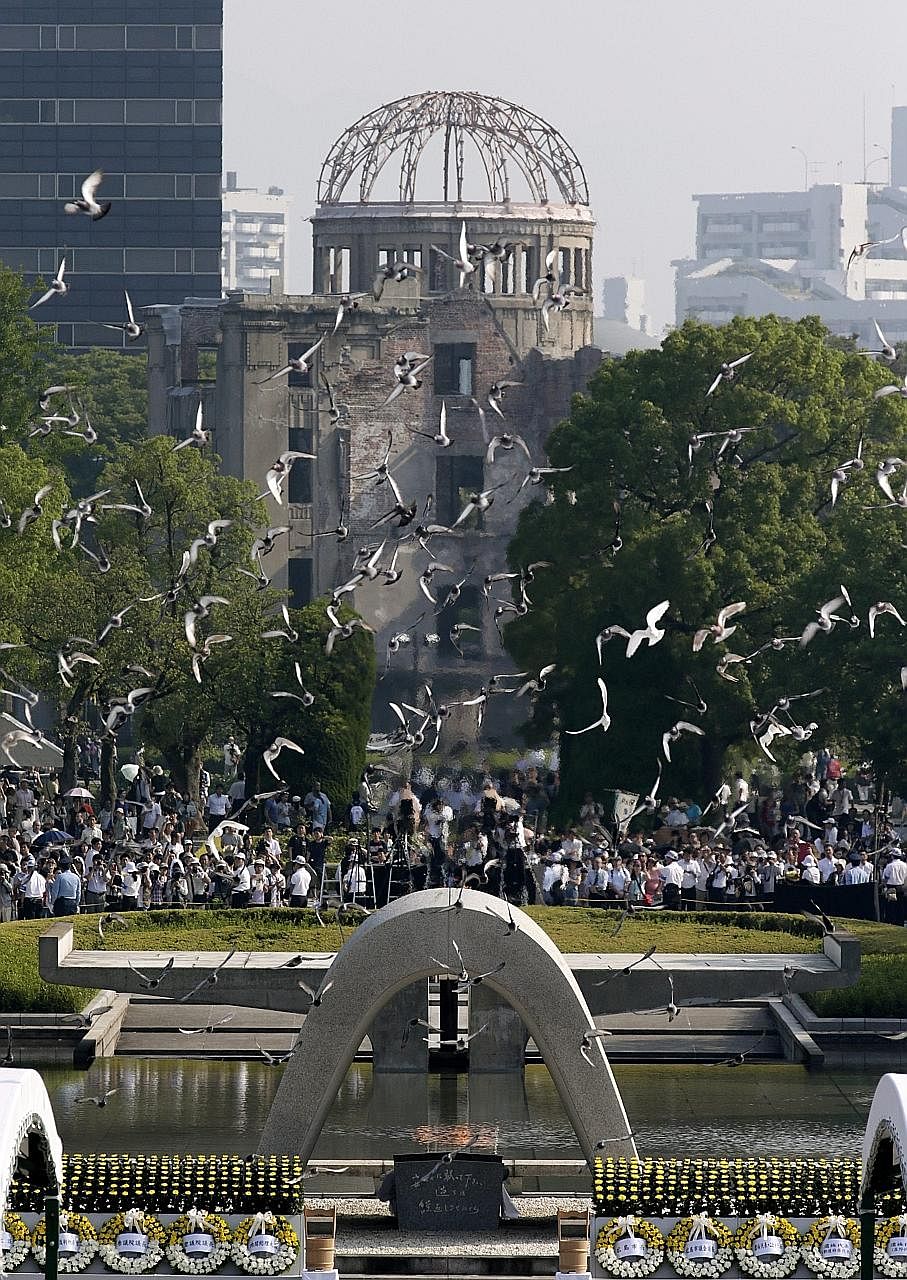WASHINGTON • President Barack Obama's forthcoming visit to Hiroshima could serve as a coda to the transformation in the relationship between Japan and the United States from wartime enemies to the closest of allies.
But it also has the potential to open old wounds, and it will take place in the shadow of a growing nuclear threat from North Korea.
About 140,000 people died after US forces dropped an atomic bomb on Hiroshima on Aug 6, 1945. Tens of thousands were killed by the fireball the powerful blast generated, with many more succumbing to injuries or illnesses caused by radiation in the weeks, months and years that followed.
Vast swathes of the city, including many of its military and industrial installations, were flattened.
The southern city of Nagasaki was hit by a second bomb a few days later, killing 74,000 people, in one of the final acts of World War II.
Mr Hidehiko Yuzaki, the governor of Hiroshima prefecture, told reporters he hoped Mr Obama would see "the reality of how the atomic bomb hurt people here, and would come away with a deep understanding of the scale of the damage".

Both US and Japanese officials sought to avoid any appearance that the May 27 visit would amount to an apology for the bombing.
Officials yesterday said the visit would spur Mr Obama's push for global nuclear disarmament although many critics believe his plan to overhaul and upgrade the US nuclear arsenal is sparking a dangerous new arms race with China and Russia.
And with North Korea now believed to be able to mount a small nuclear warhead on missiles capable of hitting much of Japan and South Korea, and Pakistan deploying small, tactical nuclear weapons seen as vulnerable to theft or misuse, the risks of a nuclear disaster may have actually worsened during his tenure.
Mr Obama's modernisation programme, including purchases of new bombers and ballistic missile submarines, could cost as much as US$1 trillion (S$1.4 trillion) over the next 30 years, said Dr Lisbeth Gronlund, the co-director of the Union of Concerned Scientists' Global Security Programme.
"The plan to rebuild and refurbish every weapon that we have basically throws the gauntlet down, and Russia and China feel like they have to match it," said Dr Gronlund.
"He has said really great things but his actions have not really been consistent with his words."
There are about 1,900 warheads in the US nuclear arsenal, and under the modernisation plan, they would be refurbished or replaced, along with the bombers, missiles and submarines that can launch them, to last for the next 30 years to 50 years, according to the Arms Control Association, a Washington non-profit group.
Mr Obama said last month that he is concerned the overhaul could cause other countries to enhance their nuclear programmes, but he added that he was striking the right balance to make sure the US nuclear stockpile is "safe" and "reliable".
During the Hiroshima trip, after a meeting of the Group of Seven leaders in Ise-Shima, Mr Obama will visit the Hiroshima Peace Memorial Park, which is dedicated to those who died during the bombing.
The White House said Mr Obama will not apologise for President Harry Truman's decision to use the bomb, which many Americans believe hastened the end of World War II and saved millions of US and Japanese lives.
NEW YORK TIMES, BLOOMBERG, AGENCE FRANCE-PRESSE
